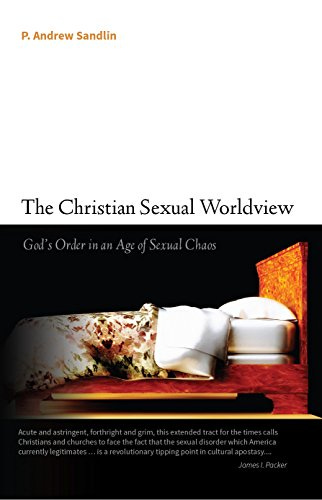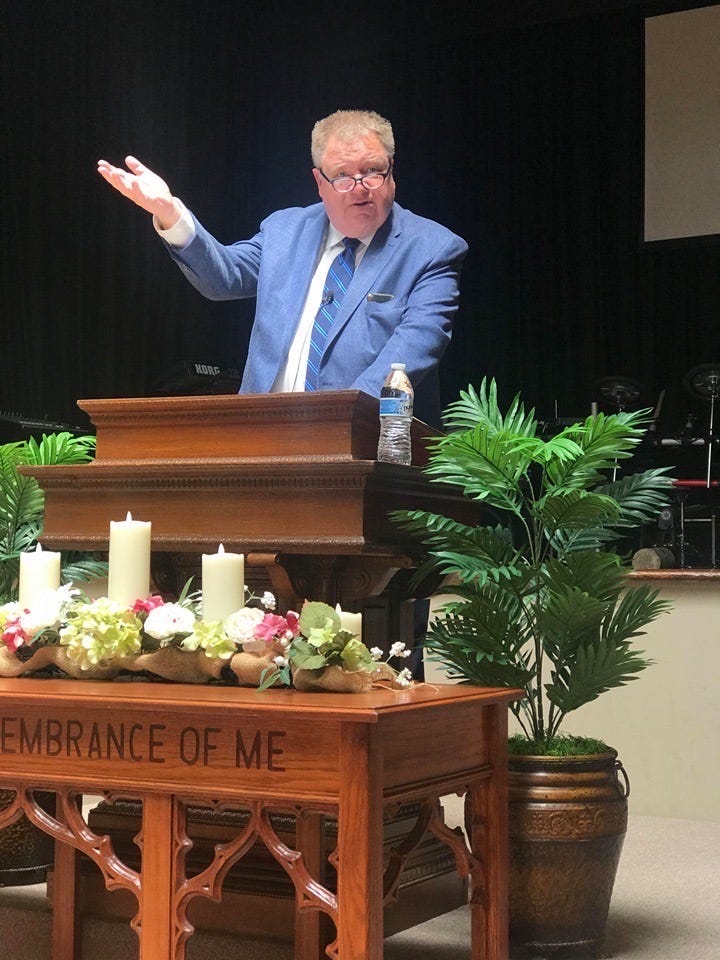Dear friends and supporters:
I was in the Wal Mart restroom a couple of years back (don’t worry; this is a clean story), and I overheard a conversation between two young men. One said something like, “I’ve become a born-again Christian. I just didn’t want anything to do with religion.”
The other replied, “I’m so happy for you, man. And you need to know it’s not religion. It’s a relationship.”
That’s a popular sentiment today, and it’s dead wrong. Christianity most emphatically is a religion. The word “religion” derives from the Latin religio. It means obligation to, bond with, or reverence for God or the gods. The root is “bind,” that which binds man to a deity. If there ever were a way of life that binds a person to God, it’s Christianity. Jehovah told the Jews that they must forsake all other gods and love and serve him alone. Jesus told his disciples that they must die to themselves and follow him. If that’s not a binding to deity, a religion, I don’t know what is.
Religious (Covenantal) Christianity
Binding in the biblical context brings to mind covenant. A covenant is a sacred bond secured by an oath, often a blood oath. The Bible is filled with covenants between God and men and between men and men. Covenants between individual men are parity covenants (each on equal footing). Covenants between God and men are suzerain covenants (a greater with a lesser). A suzerain was an ancient political lord that imposed a bilateral (two-sided) treaty on a smaller, weaker nation or people. He promises them protection, and they promise him fealty. If they default on the treaty, he pledges punishing sanctions. If he fails to protect them, they are free of his lordship (see Meredith Kline’s The Structure of Biblical Authority).
God’s treaties with man are all suzerain treaties. He pledges to man protection and blessing. Man promises to God worship and obedience. Biblical covenants with men include the Adamic; Noahic; Abrahamic; Mosaic (“old”), Davidic; and the final, “new” covenant in the shed blood of Jesus Christ.
But the modern world no longer thinks in covenantal terms. Even as late as the Middle Ages, society was covenantal. The feudal lord was akin to the ancient suzerain, and the serfs his loyal subjects. The Enlightenment with its stress on universal reason and experience as the final arbiters of truth started chipping away at covenantalism, since it undermined its inherited Christian character. Still, there were weighty agreements, which came to be known as compacts or contracts. In fact, modern contracts are simply secular versions of covenants.
It was Romanticism that started nailing the coffin shut on covenantalism. Unlike Enlightenment, the Romantics stressed the individual, the particular, and the local. The Romantics were especially interested in emotions, intuitions, and the subjective. The artist was magnified, not, as previously, as the one who could most accurately depict reality, but who could create reality out of his inner experiences. The greatest artists were the artists of their own subjectivity; the greatest inventors were the self-inventors. Romanticism pervaded modern art, like the Expressionist school. Munch’s The Scream (1893) is a widely recognizable example:

The subjective, feelings, emotions, and intuitions trumped any permanent binding such that religion requires. Or, perhaps better: the refusal to be bound by anything other than the subjective became the new religion.
(continued below)

Get the e-book here.
Religiousless (Existential) Christianity
Early 19th century Romanticism laid the groundwork for late 19th and early 20th century Existentialism (Nietzsche, Heidegger, Sartre), which perceived man’s great task as assigning his own personal meaning to a meaningless universe. He’s not bound in religion or its covenant to the Triune God, who, if he exists at all, is far, far away. Man is left to his own devices. Man invents meaning. The objective world is swallowed by man’s subjectivism.
Since its sacred binding character is what makes covenants unique, the cultural shift to existential subjectivism meant that a Christianity that accommodates itself to the world — and this has been the majority report for much of the 20th century, and not just among the “liberals” — must shed its covenantalism. “My own personal Jesus,” in the words of Depeche Mode’s 1989 song, took center stage. This didn’t mean my covenant with Jesus and through him the Father and Spirit. Rather, it meant an intense, but fluctuating, emotional relation inhospitable to the objective binding of a covenant, with its boring, routinized loyalty and obedience. The new existential faith meant that I’m bound to Jesus as my covenantal lord to the extent that I feel close to him. In other words, I’m not actually bound.
In time, 19th and 20th century “revival meetings” became necessary to restore the lost subjective experience. The Christian life was reinterpreted as a series of emotionally relational peaks and valleys, with the obligatory periodic task of revving up for Jesus. This revivalism was consolidated in Sunday worship — the weekly revival meeting.
In the Bible, by contrast, salvation is rescue from judgment and restoration to man’s prime calling, the cultural mandate, on the grounds of Jesus Christ’s sacrificial death and bodily resurrection. It is appropriated by faith (alone) as God justifies us in union with the reigning Lord. Salvation is based on the objective, historical work of Jesus Christ, and the Holy Spirit operates on this foundation to create subjective, internal change (the new birth, or regeneration) that brings us to belief in and union with Christ. The objective is the foundation for the subjective. In trusting in Christ, we cast ourselves completely on his work and we submit to his suzerain Lordship. Jesus pledges to redeem and love and preserve us, and we pledge to love and worship and obey Him in his world.
God and redeemed man are bound to each other by covenant.
Covenant salvation again
It’s often wrongly supposed that covenantalism undermines salvation by grace. Religion is inherently binding, so Christianity, which offers salvation by grace and not works, cannot be a religion.
No representatives of the Protestant Reformation answered this apparent conundrum better than the Zurich wing, Huldrych Zwingli and Heinrich Bullinger. They understood that God’s entire relation to man was governed by covenant. “It is evident that nothing else was handed down to the saints of all ages, throughout the entire Scripture” writes Bullinger, “other than what is included in these main points of the [biblical] covenant.”
We are united to Christ and brought into a vital covenantal union with him by faith alone, apart from our works, merit, or performance. It’s all of grace. That union is a covenantal union, which binds our Lord to us and us to him.
Covenental salvation = salvation without works, for works (Eph. 2:8–10). In binding himself to us, Jesus Christ binds us to him — binds us to religion, to faith and obedience, to his standards disclosed in his covenant word. We must persevere in covenant faith if we are to expect eternal life on the Final Day. This is the pervasive message of the new covenant set forth in the Epistle to the Hebrews. This perseverance is itself God’s gift to us (Rom. 8:31–39). The covenant is conditional, bilateral, through and through.
Unconditional?
But this isn’t a popular message. More and more we hear of God’s “unconditional love” and of our need to love others “unconditionally.” But “unconditional love” is not synonymous with God’s grace or eternal love.
God loves the world, but he pours out his loving salvific grace only on those who meet the condition of repentant faith in his Son. He doesn’t pledge salvation to those who reject his Son, who refuse the condition of repentant faith. This would lead to universalism, the salvation of everybody, a dangerous heresy. Salvation is covenantal, that is, conditional. “[O]ur relationship to God is not amorous [love-centered] but fiducial [fidelity- or faith-centered],” Donald G. Bloesch once wrote. God’s love and ours is bounded by covenant.
This covenantal salvation doesn’t appeal to modern Christians, who have imbibed deeply from the well of modern autonomy (self-law). Just as one can “fall” in and out of love with a spouse, and divorce him or her on that fluctuating basis, so one can and does fall in and out of love with Jesus, and this intense feeling (or lack of it) governs my relation with him. Duties to the lover Jesus are not the same as to the Lord Jesus. Love (modern romantic, emotional love) is not duty-bound like covenantal love is.
Unsurprisingly, therefore, assuring potential converts that Christianity is “not a religion, but a relationship” enjoys wide currency. Moderns want a faith adjusted to their varying, fluctuating emotional attachments. They want a Jesus who meets their emotional needs but not the Lord Jesus. Existentialism rules.
In other words, they don’t want religion.
Will you consider a tax-deductible donation to CCL via PayPal or Venmo? God uses you to keep us going — and expanding.
Conclusion
Since modern Christianity has been reduced to a relationship, and is no longer a religion, many of its adherents and churches and ministries can mimic the autonomy of the worldly culture but under the guise of a healthy Christianity. After all, the Faith is all about my intense feelings for Jesus and his for me. The Faith degenerates into what Stephen Perks has labeled a “private devotional hobby.” There is no sense of the individual Christian’s holy, loving duty to the covenant law of God; no cognizance of the requirement and privilege of the entire family committed to the covenant Lord; no understanding of the cultural mandate in retaking the world for Christ the King. God’s standards fluctuate right along with my feelings.
The religionless church subsists in order to create and foster just this sort of religionless Christian: the program has been reduced to cultivating the individual’s private devotional hobby. The entertainment church of the Sunday laser-light show and mood music and preacher’s gift at bathing the congregation in his magnetic personality and looks and voice reinforces the Tuesday night divorce and anorexic recovery programs and focus groups designed to ascertain and implement changes to make the church attractive to the depraved appetites of autonomous worldlings. They feel good about Jesus because he makes them feel good about themselves.
When the draconian political edicts imposed by ideological statists during COVID-19 judged churches “non-essential,” the religionless churches voted affirmatively. Long gone are the days in which the church insisted on its divinely imposed independent covenantal character, dictating to the state the latter’s calling — and limitations — under God’s moral law. No, the church is now a ward of the state. While loudly insisting on separation of church and state, it has joined itself to the state as a servant. An accurate self-description? “We Are the Hollow Church.”
More recently, the religionless church has been easily propagandized into “white guilt” over “white privilege” and maneuvered into supporting the culturally Marxist Black Lives Matter. White Christians bow before and wash the feet of black Christians in capitulating to a new racism obliterated by the gospel of Jesus Christ (see Gal. 1:6–10; cf. 3:23–29; Eph. 2:11–22). The church has lost its religion.
This is what Everett Piper has called The Church of Holy Wokeness:
Welcome to a neo-Marxist church that talks more about class conflict than the good news of salvation, a church of division rather than unity, one of us versus them, of the 99% versus the one, a church of the proletariat versus the bourgeoisie, of balkanization rather than the B-attitudes. Welcome to a church that has more in common with the Cultural Revolution than it does with the Cross of Christ.
Welcome to a church of racists pretending to stand against racism, a church that marches for “love” while fomenting hate. Welcome to a church that is shamelessly intolerant while it pretends to be tolerant, a “non-judgmental” church that rushes to judgment.
Welcome to a church that categorizes people by the color of their skin rather than the content of their character.
Welcome to an “affirming” church, a church that tells you you’re “born that way” rather than you must be “born again.”
Welcome to a church that bows before men while standing against God.
Welcome to a church that worships what it sees in the mirror while denying what it reads in the Bible.
Welcome to a church that has exchanged the truth of God for a lie, a church that worships the created rather than the Creator; a church that has been given over to a debased mind and reprobate heart.
This is the religionless church, the church that refuses binding to her Lord, the church that defies God and fears man, the church that covets earthly approval and spurns heavenly approval, the church driven by the plaint of sentimental heart strings and not the certain trumpet blast of the Word of God.
Christ is the chief cornerstone of the church, and the covenant is the steel backbone of the Faith.
For Christianity to regain prominence as an unstoppable cultural force, it must again become a religion.
Otherwise, it will remain toothless, spineless, and harmless, “good for nothing but to be thrown out and trampled underfoot by men” (Mt. 5:13).
Personal
This coming week Sharon and I are headed to Oregon and Washington to visit long-time friends. Please pray that God keeps us safe and productive for his glory and kingdom.
On Father’s Day I preached at Living Church International in Summerville, Pennsylvania for my dear friend Pastor David Shay. You can listen to the sermon Jesus’ Father and Ours:

I’ve been finalizing Creational Theology: An Introduction and then plan to get back to The Meaning, Marring and Re-Making of Marriage. I want to write a book on Cultural Marxism but need to do additional research. It delighted my heart to release Multigenerational Faith: Lessons by Father, Son, and Grandson, a compilation by my father Richard, my son Richard, and me. My father Richard is nearly 87 years old and in reasonably good health, certainly for his age, and he’s still ministering the gospel. My son Richard just graduated with his Ph.D. in philosophy and is on a path to enter the gospel ministry. It will be three generations of Sandlin gospel ministers. God gets the glory.
CCL keeps growing. God keeps blessing. You keep praying and donating. Thank you deeply. I need you.
Yours for the True Religion,

Founder & President
More great stuff:
My Amazon author page (print and digital) is here.
You can find my sermons and lectures at my YouTube channel.
Sign up to get my blog updates here.
Here’s my Twitter feed.
Here’s my Parler feed.
If you want to get the free exclusive hard copy publication Christian Culture, please send me a Facebook private message.
The CCL phone number is 831-420-7230.
The mailing address is:
Center for Cultural Leadership
P.O Box 100
Coulterville, CA 95311
The CCL podcast LordshipLife targets young adults (12-19 years old) with thoughtful, direct, gracious biblical truth for today’s world. It would be great for your children or grandchildren. The latest episode is “Things That Make Bad Masters.” Why not subscribe?
List of Coronavirus-related posts and podcasts:
“What the COVID-19 Drama Has Revealed About Our Institutional Character”
COVID-19 and Legality: An Interview with Jeffery J. Ventrella
COVID-19 and Economics: An Interview with David L. Bahnsen
COVID-19 and Theology: An Interview with Brian G. Mattson
“COVID-19 and Our Crisis of Liberty”
“Thinking Christianly During Covid”
“COVID-19, Politics, Church, and Culture”
(Dr. Ardel Caneday and I address vital questions. This was a succinct, wide-ranging conversation discussing everything from the interpretation of Romans 13, radical 2-kingdom theology, the nature of the church, whether the church should cancel public worship, whether the civil magistrate is bound to God’s law, the Founders’ view of human nature, the diabolical basis of coronavirus fear, and much more. The password is: 1j$@^=S#)
If you know of anybody who might enjoy this newsletter and subsequent ones, I’d be grateful if you asked them to sign up here.



